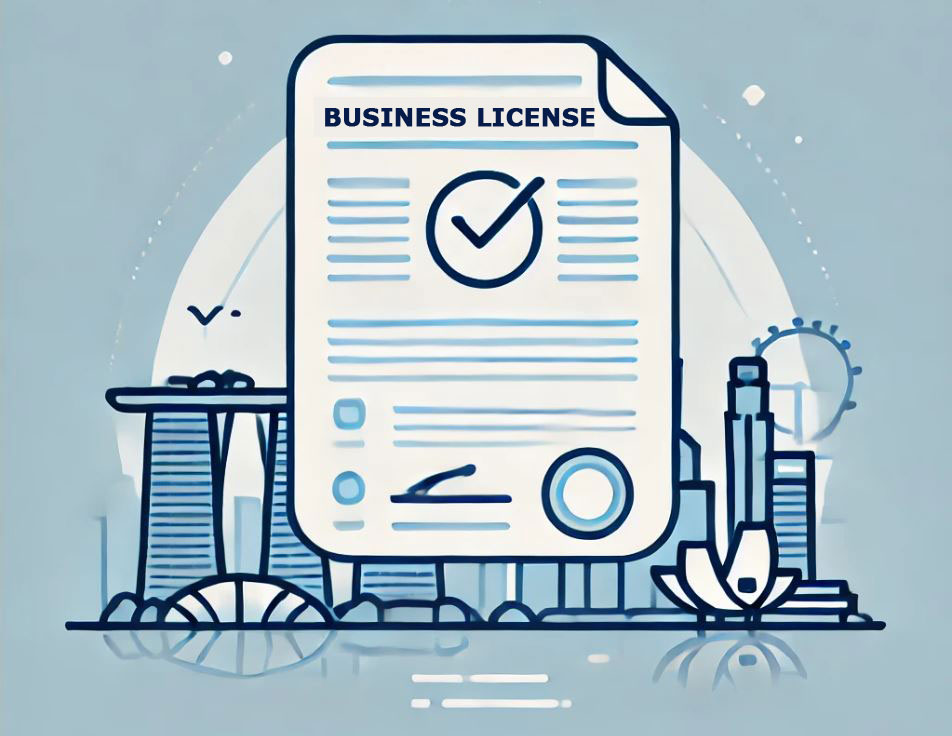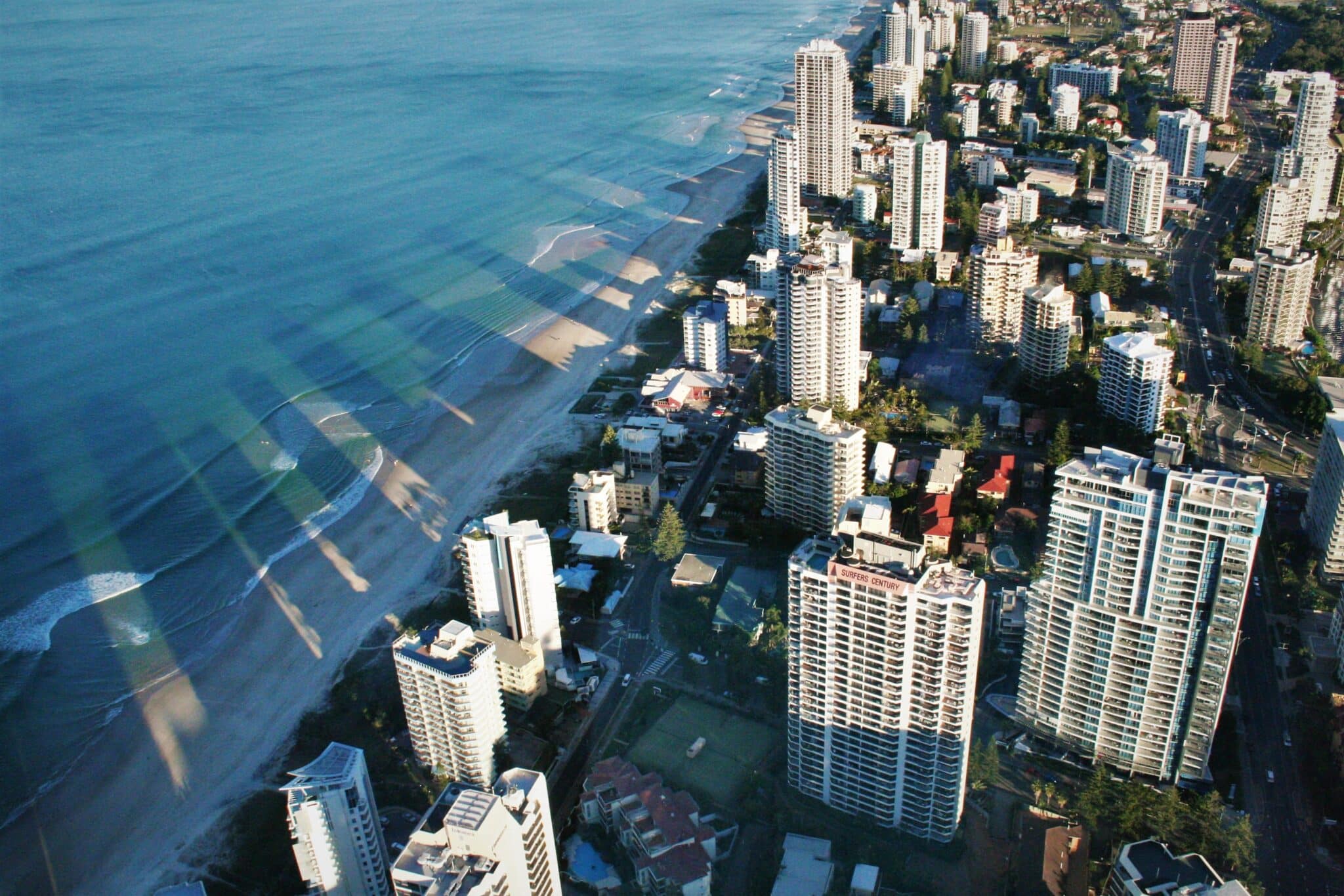Business License in Singapore – An Overview

1. What Is a Business Licence?
A business licence is a key document that confirms the legality and trustworthiness of a company or entrepreneur in a certain field. If the company’s business activity is within one of the regulated industries, it is an important step to comply with all legal and regulatory requirements in Singapore. By obtaining a business licence in Singapore, you demonstrate compliance with the established safety standards, personnel qualifications, sanitary standards and financial stability. This document protects the interests of consumers and the public and ensures the high quality of services and goods provided. In this quick guide, we will help you figure it out and get it quickly and professionally.
2. General Licencing Requirements in Singapore
Who must obtain a licence?
It is mandatory for all organisations and individuals wishing to conduct certain types of business activities in Singapore to obtain the relevant licence. This important step is necessary to effectively regulate activities that may impact public health and safety, the environment, financial stability or other public interests.
Key reasons for obtaining a licence in Singapore:
- Professionalism and compliance: licences ensure compliance with laws and regulations, which is integral to responsible business conduct.
- Protection of the interests of clients and society: Licensing is aimed at ensuring high quality of services and goods, preventing possible risks and protecting public interests.
- Regulation of industries: licences are required for activities associated with high risks or complex technical processes, ensuring control and safety of important areas of activity.
Obtaining a licence is a key step in the process of setting up and running a business in Singapore. Сompliance with all requirements helps to avoid negative consequences in the form of fines, sanctions and restrictions.
3. Types of Licences
Singapore has a well-defined licensing system that is mandatory for businesses and professionals to operate legally and effectively. Different types of licences may be required depending on the nature of the business or profession. Compulsory licences are for specific sectors, occupational licences are for specialised services and business licences and permits that are designed specifically for different industries. Each type of business licence in Singapore ensures that the high standards of the relevant sectors are met, ensuring compliance with Singapore’s stringent legal and professional requirements. Here is a brief overview of the main types of licences required to operate successfully in the country.
Compulsory Licences
In Singapore, certain types of businesses are required to obtain special licences before commencing operations. These licences are required for educational institutions, travel agencies, real estate agencies, liquor and tobacco distributors, food and beverage establishments and financial institutions. Once your business is registered with the Accounting and Corporate Regulatory Authority (ACRA), you must apply for the relevant licences before commencing actual operations. These licences ensure that your business meets the strict standards set by the Singapore Government and are mandatory for operating in the country.
Occupational Licences for Professional Services
Certain types of professional activities require special licences. Doctors, lawyers, pilots, accountants, architects and commodity futures traders must be licenced by relevant bodies such as the Ministry of Law, the Institute of Singapore Chartered Accountants, the Board of Architects, Singapore Medical Council or the Monetary Authority of Singapore. This applies to both local and foreign professionals, who can obtain licences after registering with relevant professional associations and having their qualifications recognized in Singapore. Professional licence ensure that professionals meet the high standards of their profession and are qualified to provide their services in the country.
Business Licences and Permits
Some types of business activities in Singapore require specific industry licences or permits. Once a company is registered with ACRA, it is necessary to obtain these to commence the relevant activities. For example, restaurants may require liquor licences and sanitation permits, while construction companies may require construction licences. It is important to note that some types of businesses may require more than one licence. These industry licences complement the mandatory licences and ensure that your business complies with the requirements of the specific industry.
4. Licences by Field of Business Activity
Restaurant and Food Business: Requires a Food Shop Licence from the Singapore Food Agency (SFA) ensuring sanitary standards. A Liquor Licence is needed if alcohol is served, and Halal Certification is required for offering Halal products.
Travel Business: Travel agencies must obtain a Travel Agent Licence with a minimum paid-up capital of S$100,000.
Retail: Most retail businesses selling ordinary goods like clothes or electronics do not need a licence. However, selling regulated items such as alcohol, food or medicine requires specific licences (e.g., Liquor Licence, Food Retail Licence or Pharmacy Licence). Supermarkets and telecommunications stores may also need additional licences depending on the goods they offer.
Trading: For trading ordinary goods within Singapore, no specific licence is generally required. However, when importing goods into Singapore, an Import Permit is necessary, which involves customs clearance and compliance with regulations set by Singapore Customs.
Shipping: A Shipping Licence from the Maritime and Port Authority (MPA) is required for shipping companies, along with additional logistics and chartering licences.
Financial and Insurance Services: Financial institutions need licences from the Monetary Authority of Singapore (MAS). Minimum paid-up capital requirements vary by type. For example, general insurers typically need a minimum paid-up capital of S$5 million to S$10 million, while banks may require substantially more, starting from S$1.5 billion.
Media, Telecommunication and IT: Requires a Broadcasting Licence or Telecommunications Licence from the Infocomm Media Development Authority (IMDA) for media and telecom services, with a minimum paid-up capital of S$100,000. Specific IT services may need additional licences.
Educational Institutions: Private schools must be registered with the Ministry of Education (MOE) and obtain a Private School Licence. This licence ensures that the institution meets educational standards and has qualified teaching staff.
Construction, Real Estate and Logistics: Construction companies require a Construction Contractor Licence, while real estate agencies need a Real Estate Agency Licence from the Council for Estate Agencies (CEA).
Healthcare and Pharmaceuticals: Requires a Healthcare Institution Licence from the Ministry of Health (MOH) to ensure quality standards in services and patient safety.
Hotels and Spas: Hotels need a Hotel Licence from the Hotels Licencing Board and spas require a Spa Establishment Licence, which can be obtained from the Singapore Police Force. Both licences ensure compliance with hygiene, safety and service quality standards.
5. Licence Issuance and Renewal Process
Before applying for a business licence in Singapore, ensure your business is registered with ACRA and that you have created a CorpPass account. This is necessary for accessing government e-services, including online licence applications via GoBusiness. Make sure you have all the required qualifications, documents and funds. Different government agencies issue licences, and after issuance, they must be regularly renewed to avoid fines, suspension or revocation.
*Remember that only an executive director, partner or insider of the Singapore company is authorized to apply for a business licence, ensuring all company obligations and liabilities are covered. Additionally, foreign applicants must first obtain an Employment Pass before applying for a business licence.
When do you need to renew the licence?
Business licences in Singapore are usually valid for one to three years. For instance, liquor or food licences are usually issued for one year, while a travel agency licence can be valid for up to two years.
- Timely renewal: To avoid business interruptions, it is necessary to renew your licence before it expires. For example, it is recommended to start the renewal process one month before the expiration date.
- Renewal reminders: Some regulators may send renewal notices a few weeks before the expiration date. However, it is the business owner’s responsibility to renew it on time.
The process of applying for an extension
- Preparing documents:
- Information Update: Always check and update the company information provided when obtaining the licence. Information such as management, address, contact details and services must be up to date.
- Preparing documents:
- Activity Reports: To ensure the transparency and legality of the company’s activities, activity reports, financial data or other documents confirming compliance with the licence conditions may be required.
- Applying for renewal:
- Online Platforms: Most licences can be renewed online through the same portals used when you first applied for it, such as GoBusiness. The platform offers a step-by-step application process, from choosing a business type to obtaining all the necessary documents. It also provides tools to check the status of the applications and get advice on regulatory requirements.
- Applying for renewal:
- Paying Fees: Renewing a licence usually requires paying a fee similar to the one charged when it was first obtained. For example, the cost of renewing a liquor licence can range from S$220 to S$880 per year, depending on the type of licence.
- Submission Timeframe: The renewal application will be reviewed by specialists as soon as possible, usually from a few days to a few weeks depending on the type of licence and the specifics of the review process.
- Updating licences when business conditions change:
- Changes in Business Activities:
- Updating licences when business conditions change:
- licence Renewal: If a business expands or changes its scope of activities, it may be necessary to renew its existing licence or obtain a new one. For example, if a restaurant decides to start selling alcohol, it must obtain the appropriate alcohol licence.
- Notifying Regulatory Authorities: It is necessary to inform the regulatory authorities about any changes in the company’s activities and submit an application for a renewal or additional licence.
6. Fines and Penalties for Lack of Licences
It is important to understand that doing business in Singapore without the appropriate licences can lead to serious legal and financial problems. The government strictly monitors compliance with the rules and punishes businesses that violate them. Therefore, it is necessary to be careful and follow all requirements to avoid fines and other negative consequences. Below are the most possible consequences of not having licences and advice on how to avoid them.
Financial Penalties
Singapore strictly regulates operating without a licence and violating this rule can result in serious financial consequences. Fines vary depending on the type of business and can be significant, reaching tens of thousands of Singapore dollars. For example, violating regulations in the food industry can result in a fine of S$10,000 for the first violation. For financial institutions, the fines can be even higher, with daily penalties added for illegal activities.
Legal Implications
In addition to financial penalties, breach of licensing conditions may result in criminal penalties, including imprisonment, a ban on doing business, and deregistration of the company. Therefore, it is important to always comply with the licensing terms and conditions to avoid additional fines and licensing issues.
How to Avoid Violations
To avoid fines and legal problems, it is essential to familiarise yourself with licensing requirements in advance. Keeping your licences current and up to date, complying with all terms and conditions, and consulting with experienced lawyers are the key steps to ensure you comply with the law. If fines and penalties arise, it is possible to challenge them, but this will require strong grounds and evidence, which can be difficult without professional support.
Business License in Singapore - Wrapping Up
Compliance with licensing requirements in Singapore is like hitting the bull’s eye for a successful business! Don’t wait too long with obtaining and renewing licences as this is the key to avoiding fines and troubles. Follow legislative updates to stay up to date with all changes. If difficulties arise, do not hesitate to seek legal advice. Be transparent and responsible in your business – this will help you minimise risks and maintain an impeccable reputation for the company.


